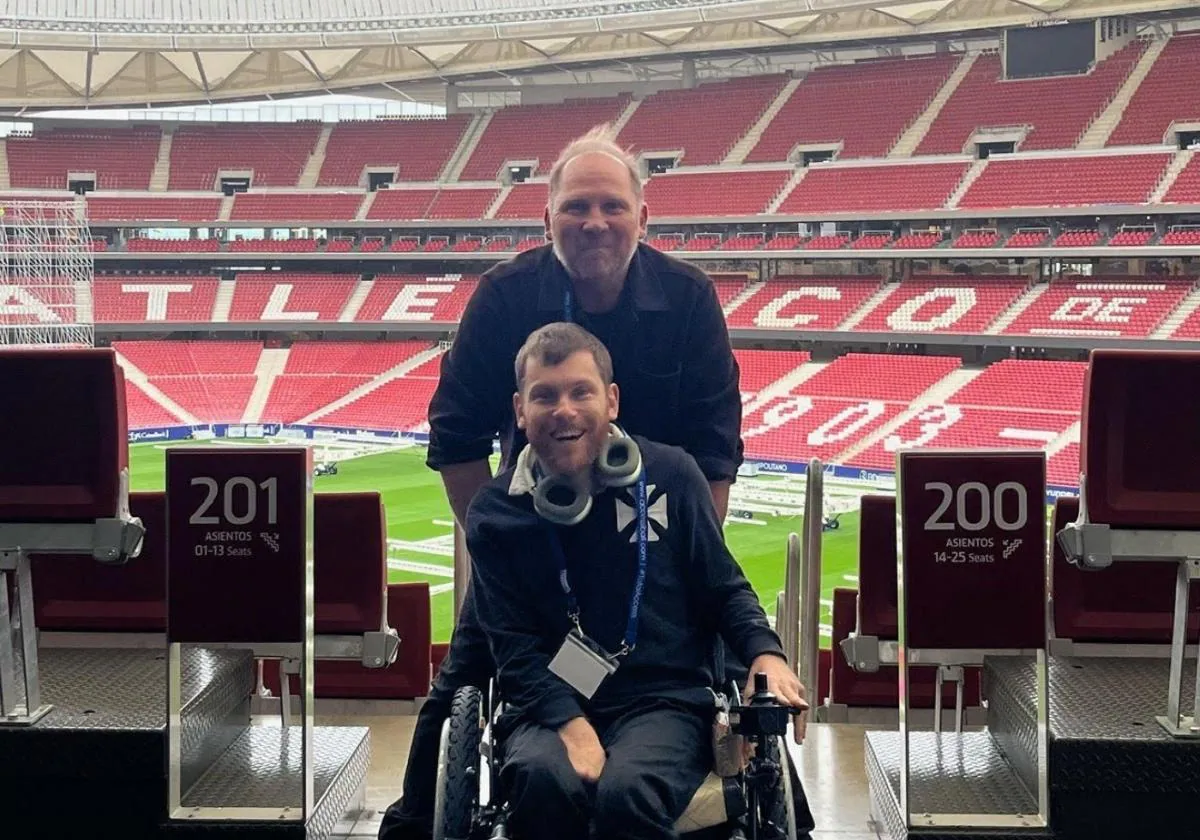Welcome to our world
The AccessibALL conference held in Madrid this week aims to make sport accessible to fans with disabilities
Rob Palmer / ESPN commentator
Malaga
Friday, 15 November 2024, 15:56
When Rodri hobbled up to the podium on his crutches to collect his Ballon d'Or award, it may have hit home to a few ... folks that accessibility can be a major issue for all reaches of football.
I'm sure there was mild panic behind the scenes when they realised the star attraction was currently disabled. Welcome to our world.
My son Ellis (who proofreads this column every week) is a wheelchair user and deeply embroiled in improving the football experience for fans and all people in the world of football.
It has been a challenge; from his first match, when I carried him to the top of the Kop to the 2023 Champions League Final when he was genuinely concerned for his life.
Don't zone out please. You may think that disability access doesn't concern you. Statistics would suggest otherwise. 33% of people in Spain have a disability; it's 24% in the UK. You'll know someone who is hard of hearing, struggles with their sight, uses a wheelchair or is neurodivergent.
This is a pivotal moment as money flows throughout the football industry. Spain is aiming for 11 venues for the 2030 World Cup. The conference this week aims to set global standards for football stadia.
Millions of euros have been ringfenced for stadia improvements and redevelopments in La Liga. It's important the money is used to make the grounds accessible for all rather than splurged on a reserve right-back.
That's why Ellis and I were part of the AccessibALL conference held at Atletico Madrid's stadium this week.
We've come a long way from me carrying my four-year-old son from the car park to the rear rows of Anfield stadium, not being able to see a single thing at the Millenium Stadium due to a design fault, and then helping Manchester City make some subtle improvements.
Working for Sky Sports in 2003, the then-Man City chairman was proudly giving me a tour of the stadium they were converting after the Commonwealth Games when I set him a dilemma. I asked him to sit in the wheelchair area as I sat in the seat in front. When I jumped up to celebrate a goal, naturally he jumped up too. I pointed out that this was unlikely that he was a wheelchair user. The result was gentle ramps being built to slightly-raised platforms in the areas where fans who have reduced mobility watch matches from.
Another challenge is getting to and from matches. I once closed a London Underground station when I refused to allow the doors to close on a train until Ellis and his chair could safely board the tube. A multi-million pound development hadn't factored in "Please Mind the Gap" and there wasn't a ramp available.
We've come a long way. Atléti's modern facility ensured that fans with mobility impairments can get to the stadium on the metro, enter that stadium without hassle or kerbs, and make it to a perfect viewing point within minutes of getting through the entrance.
It's not a perfect world; it never will be. But there are people working very hard to make sport accessible for all.
¿Tienes una suscripción? Inicia sesión
